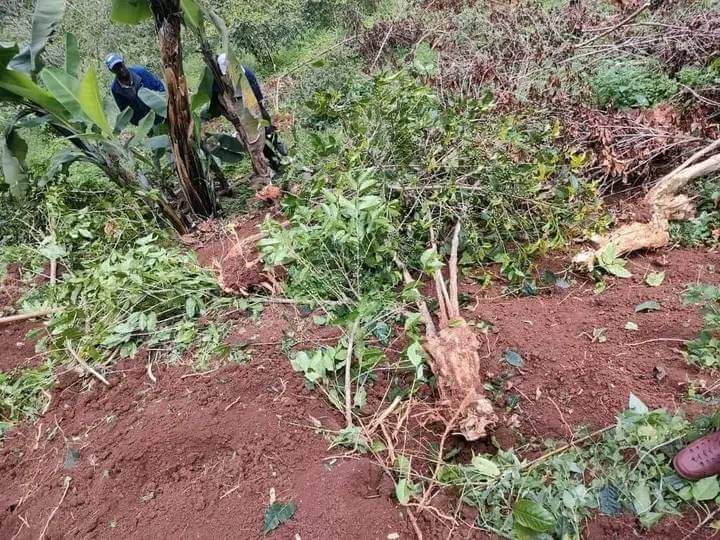In a recent turn of events, Mathira farmers in Kenya have taken drastic action by uprooting their coffee crops, citing a significant decline in prices since the departure of former President Uhuru Kenyatta from power. This action has sparked a renewed debate on the agricultural policies and decisions made during Uhuru Kenyatta’s presidency.

The discontent among Mathira farmers stems from the perceived failure of the government to consult them before making significant policy changes that have had far-reaching consequences on their livelihoods. One particular point of contention is the decision to liberalize the coffee sector during Uhuru Kenyatta’s tenure.
Farmers in Mathira, a region known for its coffee production, have long depended on coffee as a source of income. However, the liberalization policies enacted during Kenyatta’s presidency led to a more open market where coffee prices were determined by supply and demand forces, without government intervention. While this approach aimed to boost competition and increase market efficiency, it also exposed farmers to the volatility of international coffee prices.
One farmer, who wished to remain anonymous, voiced the collective frustration of the community: “Why did Uhuru give out the sword without our permission, now see our coffee is being bought like njugu karanga.” The reference to “njugu karanga” highlights the stark difference in pricing between coffee and a commodity as commonplace as roasted peanuts. Farmers who have invested years in nurturing their coffee crops now feel that their efforts have been devalued.
What makes this situation particularly intriguing is the farmers’ decision not to blame Deputy President William Ruto, who has been an outspoken political figure since Uhuru Kenyatta’s exit from power. Ruto, often associated with the opposition party, has been critical of the previous government’s policies, including those pertaining to agriculture. The farmers’ reluctance to blame Ruto suggests a deeper frustration with the policies enacted during the Kenyatta administration, rather than a wholesale condemnation of the current political landscape.
The uprooting of coffee crops serves as a poignant symbol of the challenges faced by Kenyan farmers, especially those in the coffee sector. The government’s role in shaping agricultural policies and supporting farmers during times of economic hardship is a crucial factor in ensuring the sustainability of this vital industry. The Mathira farmers’ protest underscores the need for a more consultative approach in policy-making that takes into account the concerns and aspirations of those who depend on the land for their livelihoods.

As this situation unfolds, it remains to be seen whether the government will respond to the grievances of Mathira farmers and take steps to address the decline in coffee prices. Additionally, it raises questions about the long-term consequences of liberalization policies in the agricultural sector and the need for a balanced approach that protects the interests of farmers while promoting market efficiency.
In the coming weeks, political observers will closely monitor how this issue shapes the discourse around agriculture and economic policy in Kenya, and whether it has any impact on the upcoming elections. The Mathira farmers have sent a powerful message through their actions, and it is now up to the government and political leaders to respond in a way that safeguards the interests of Kenyan farmers and ensures the sustainability of the nation’s agricultural sector.












